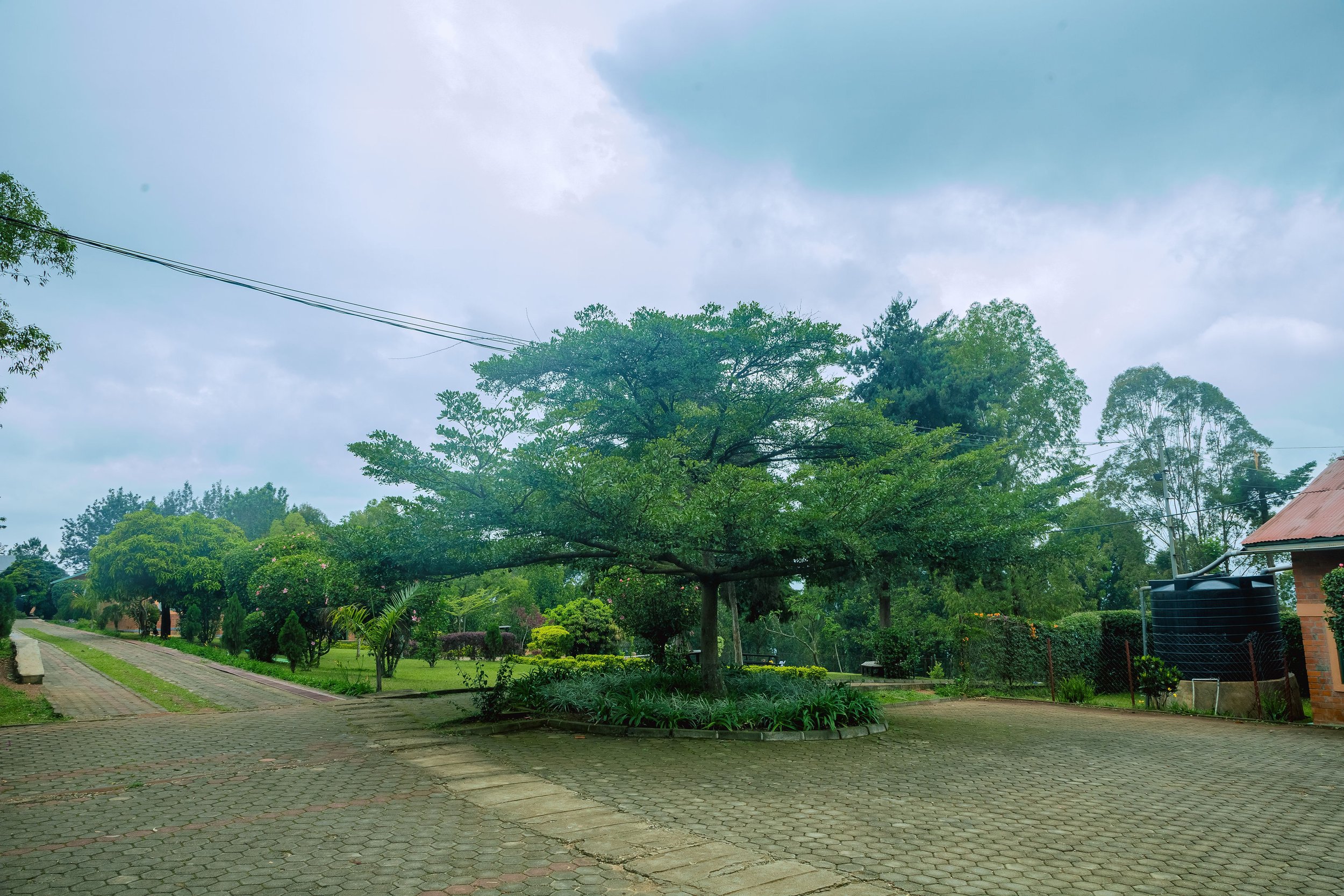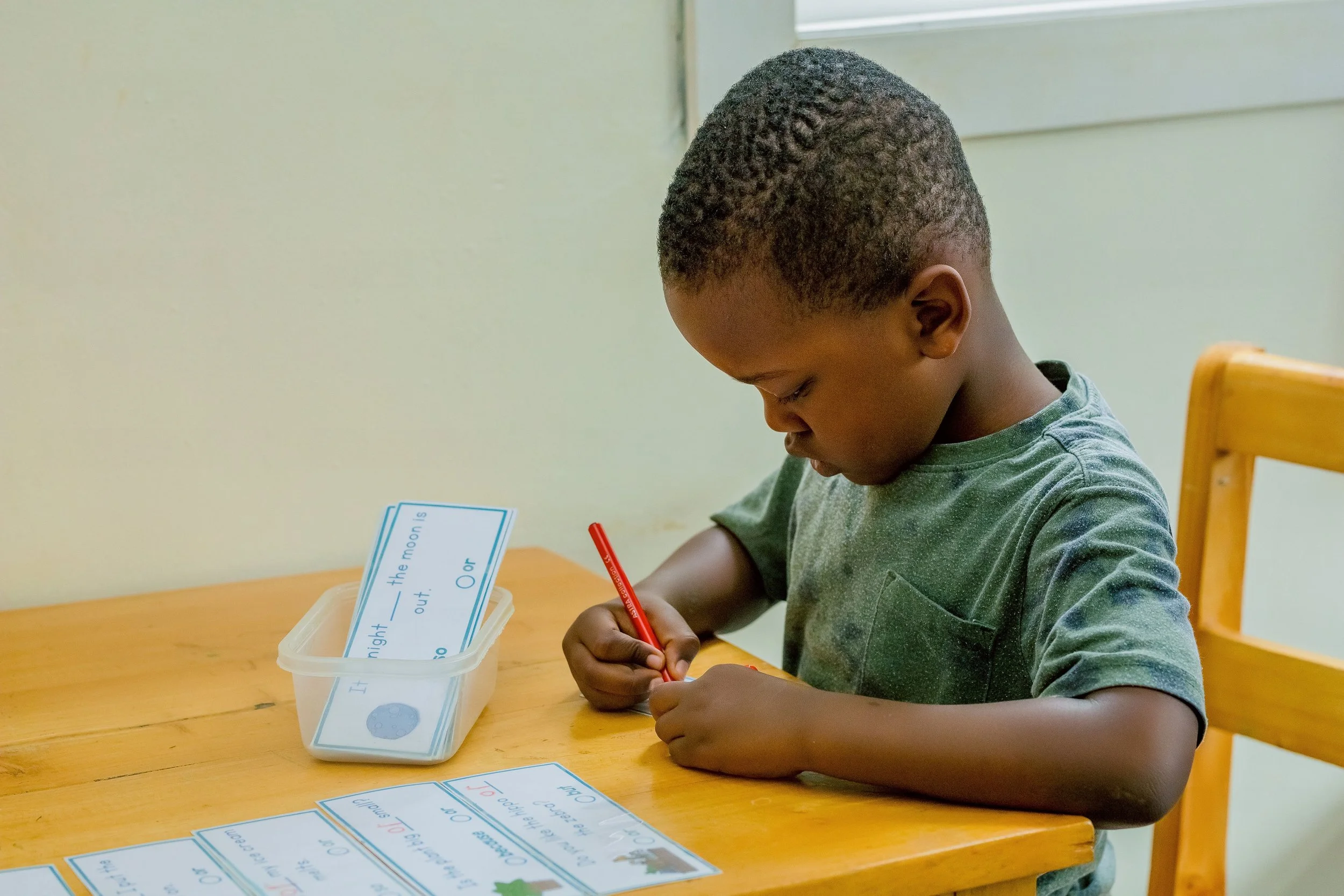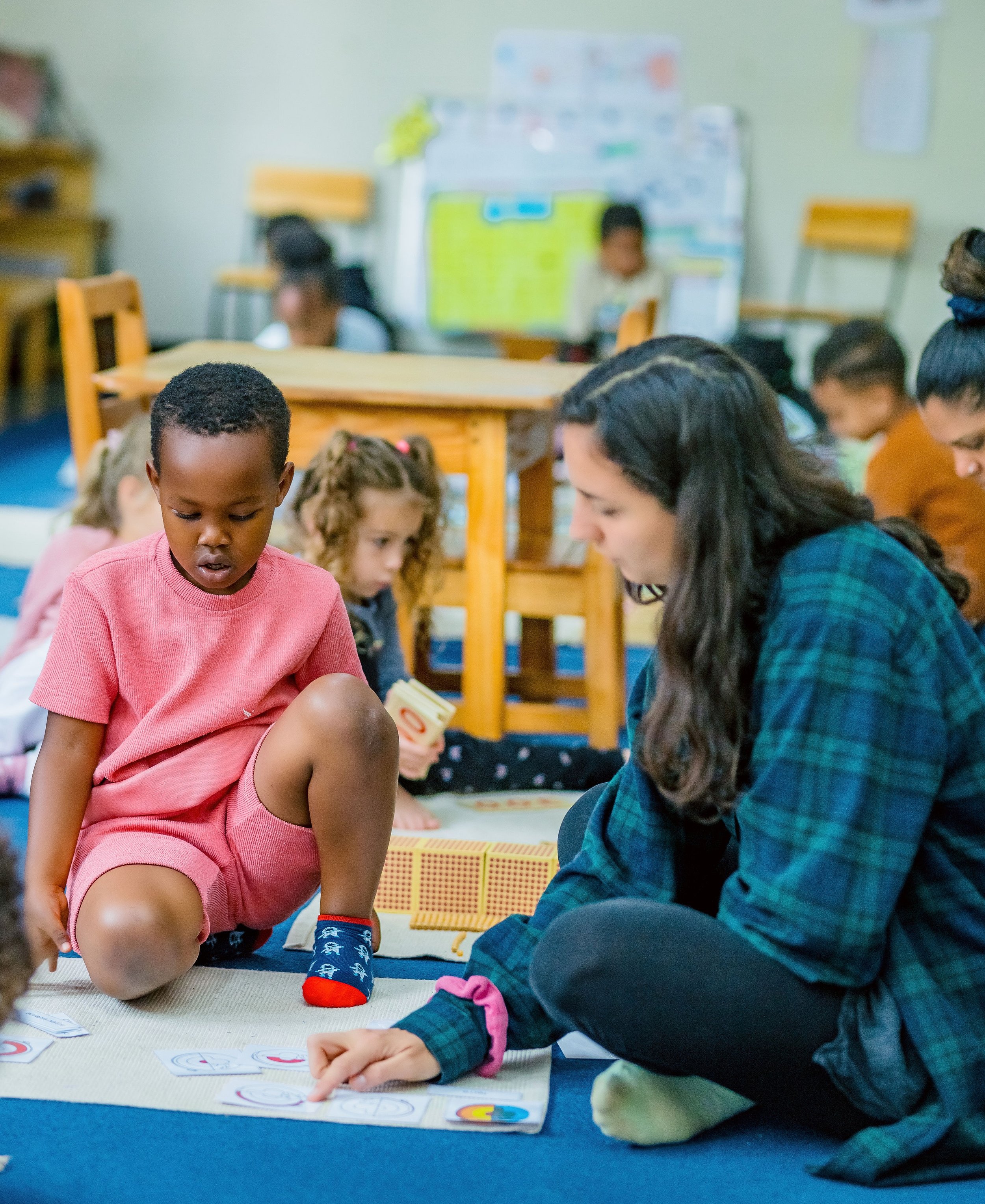
Early Childhood
Children ages 3-6 years old begin developing important skills that are fundamental to all learning; concentration, a sense of order, coordination, confidence, and independence.
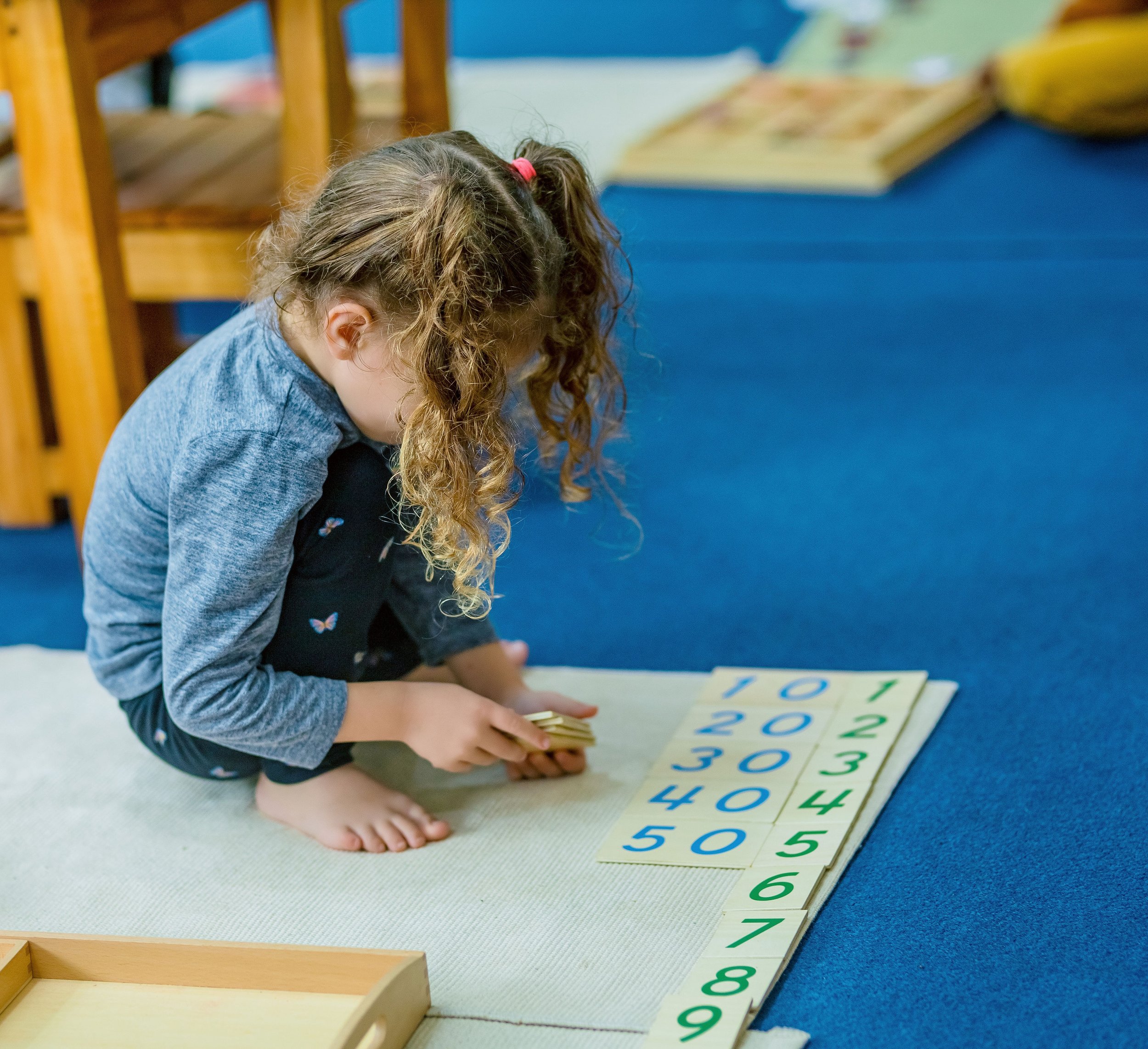
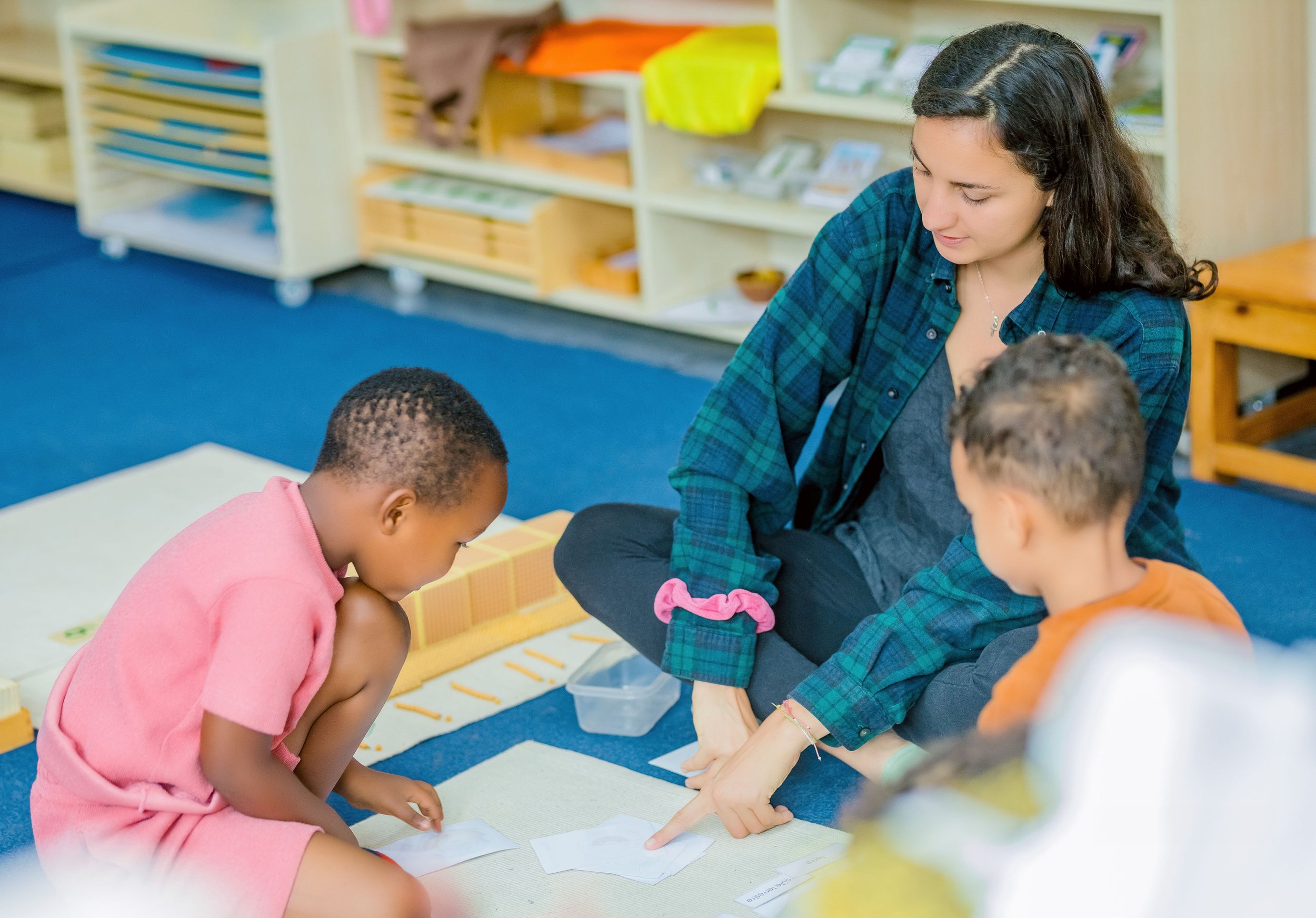
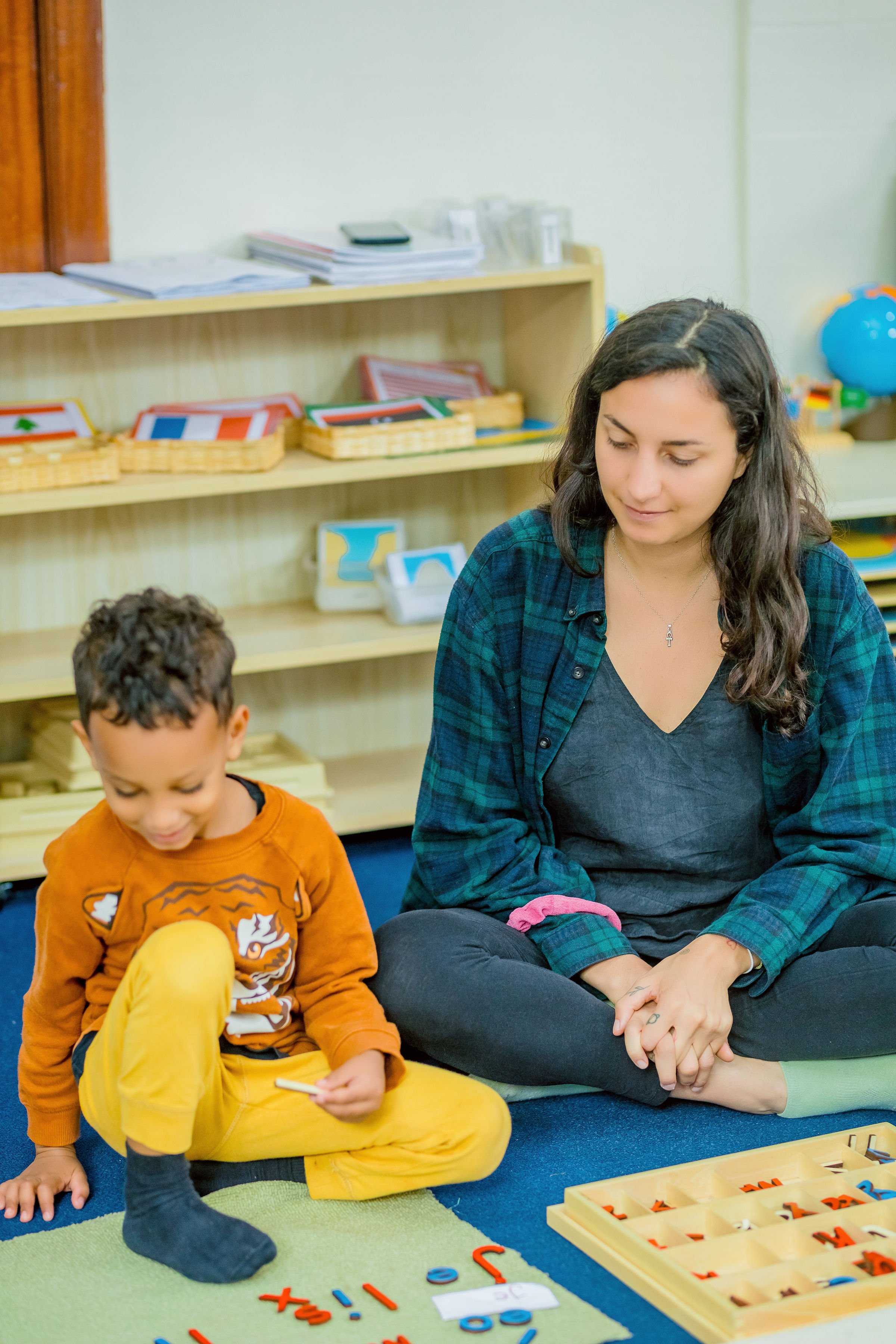
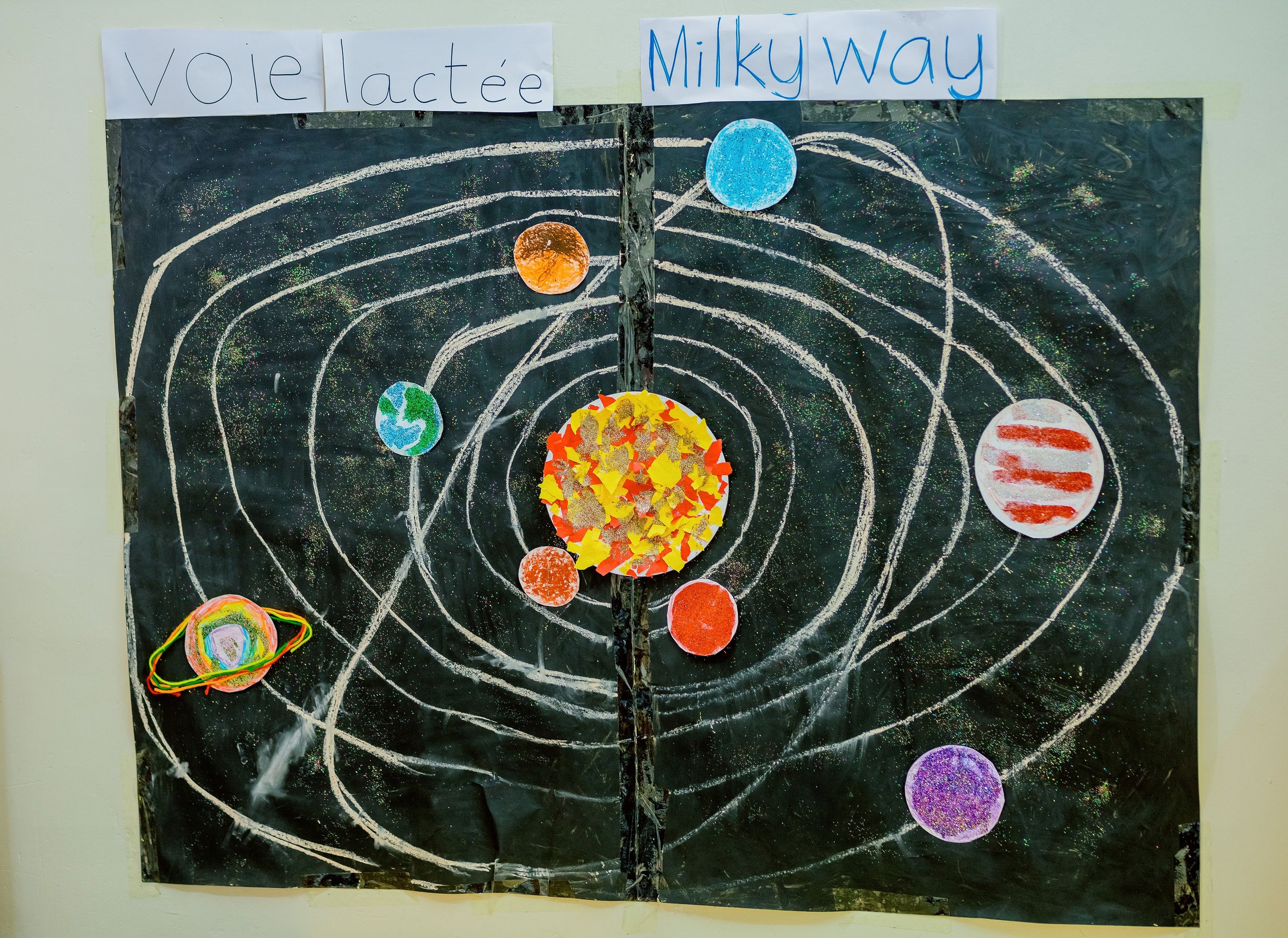
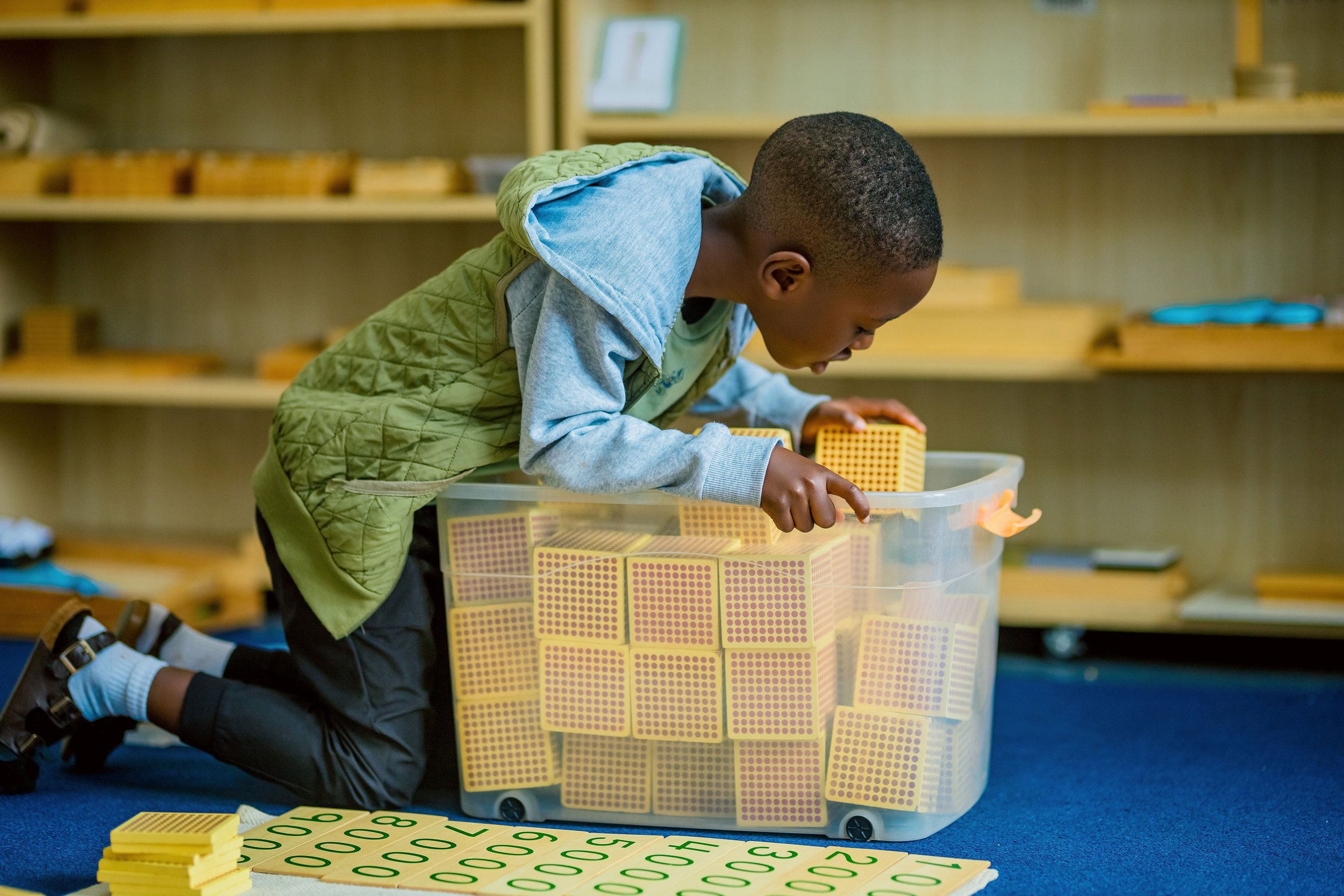
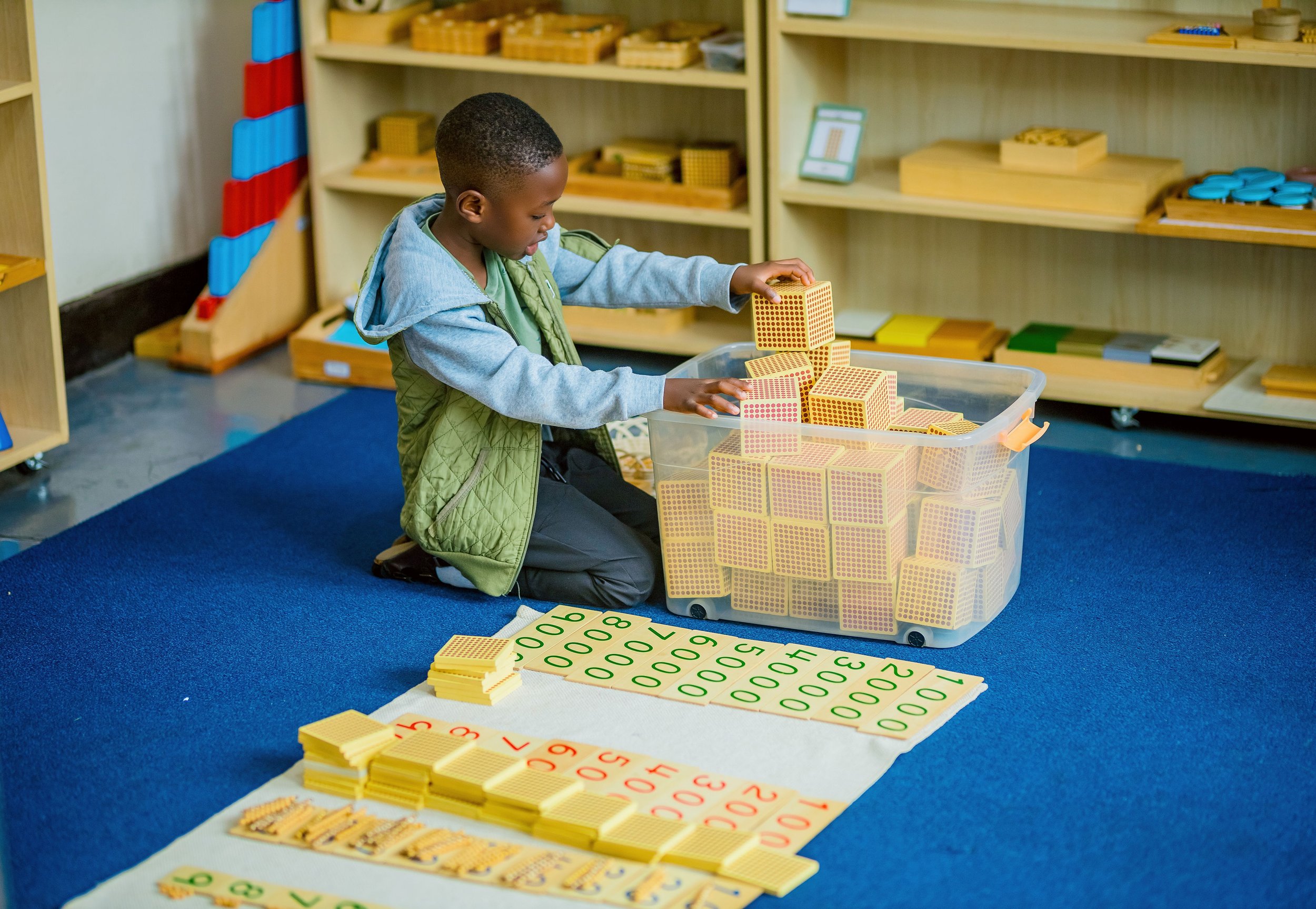
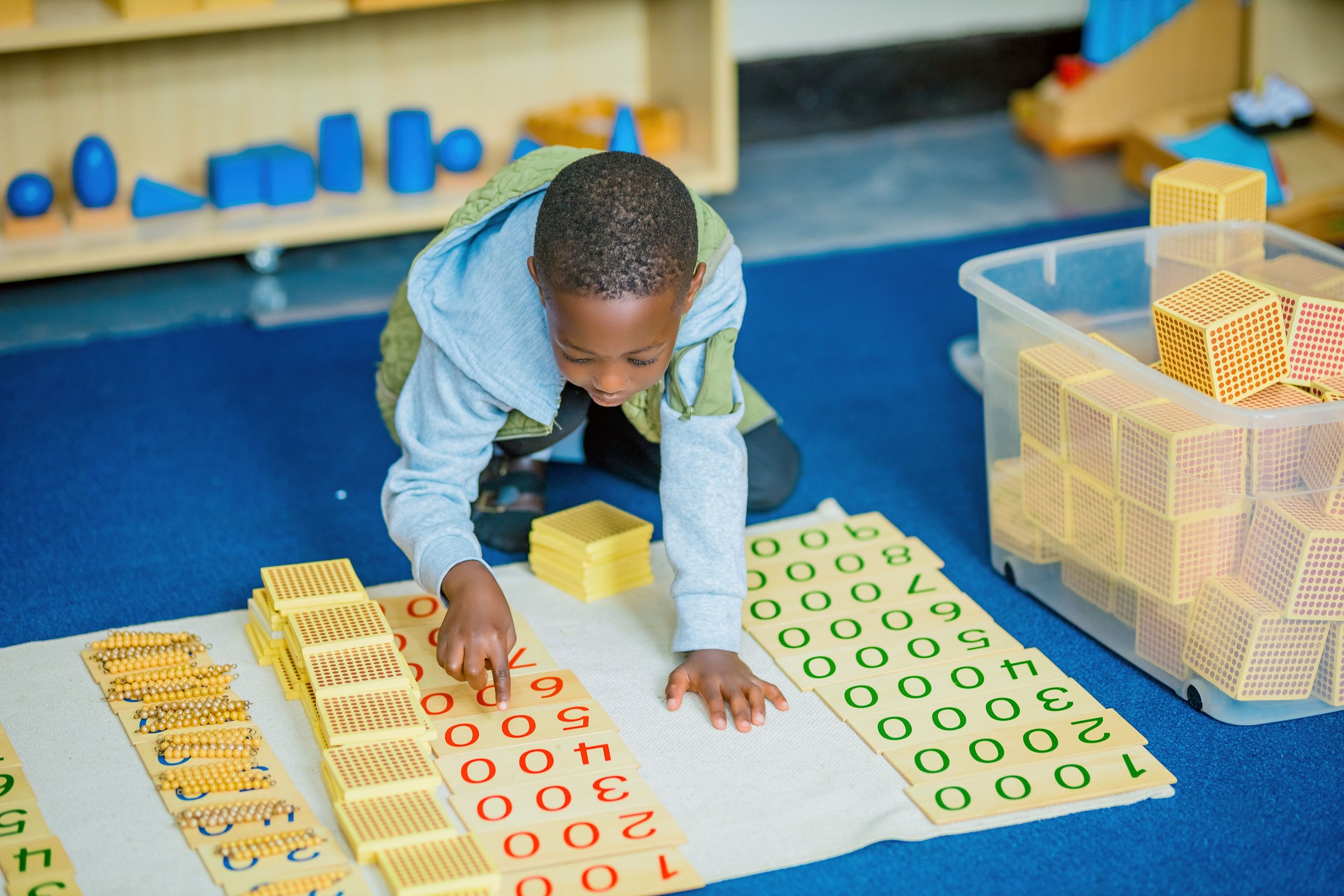
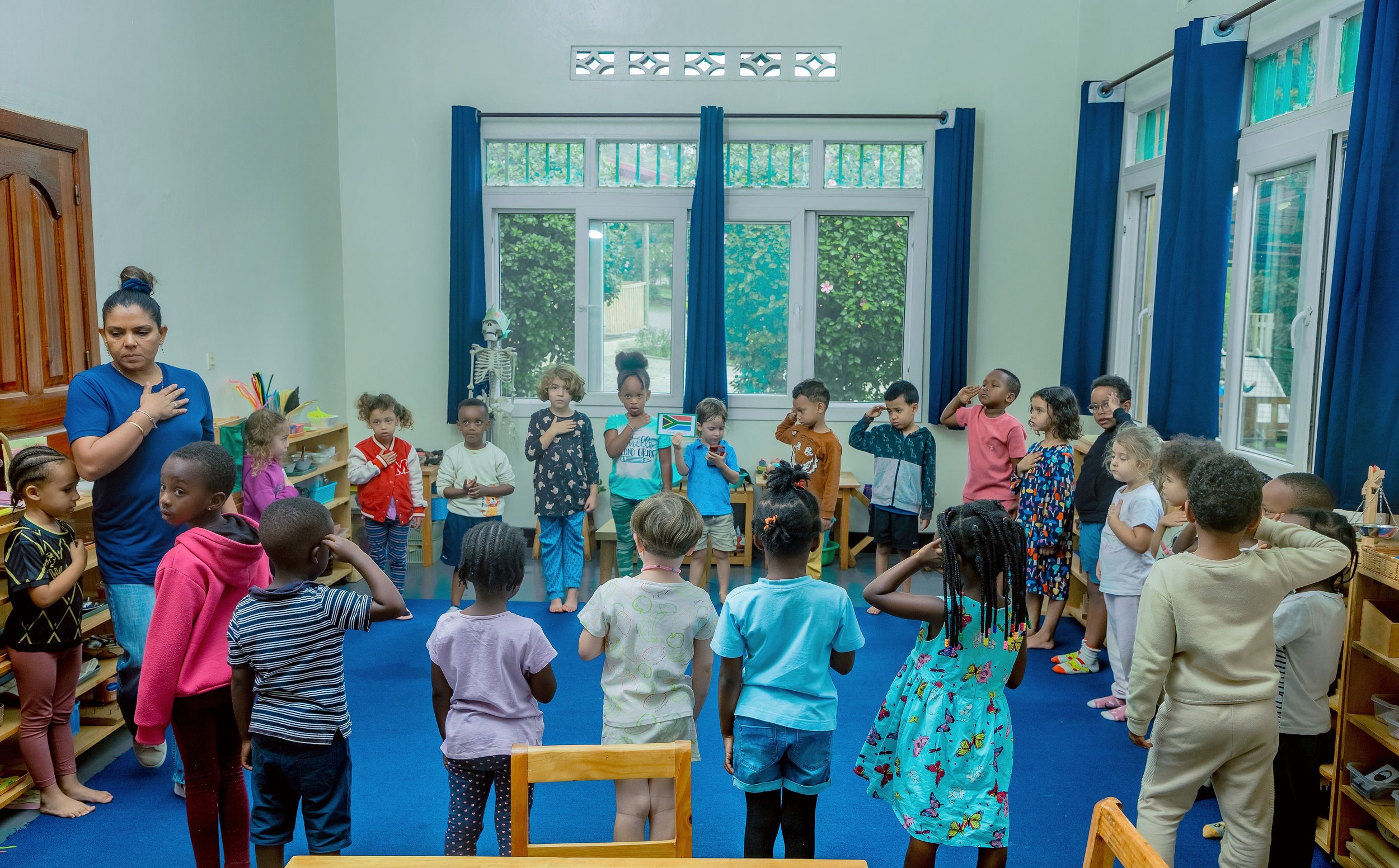
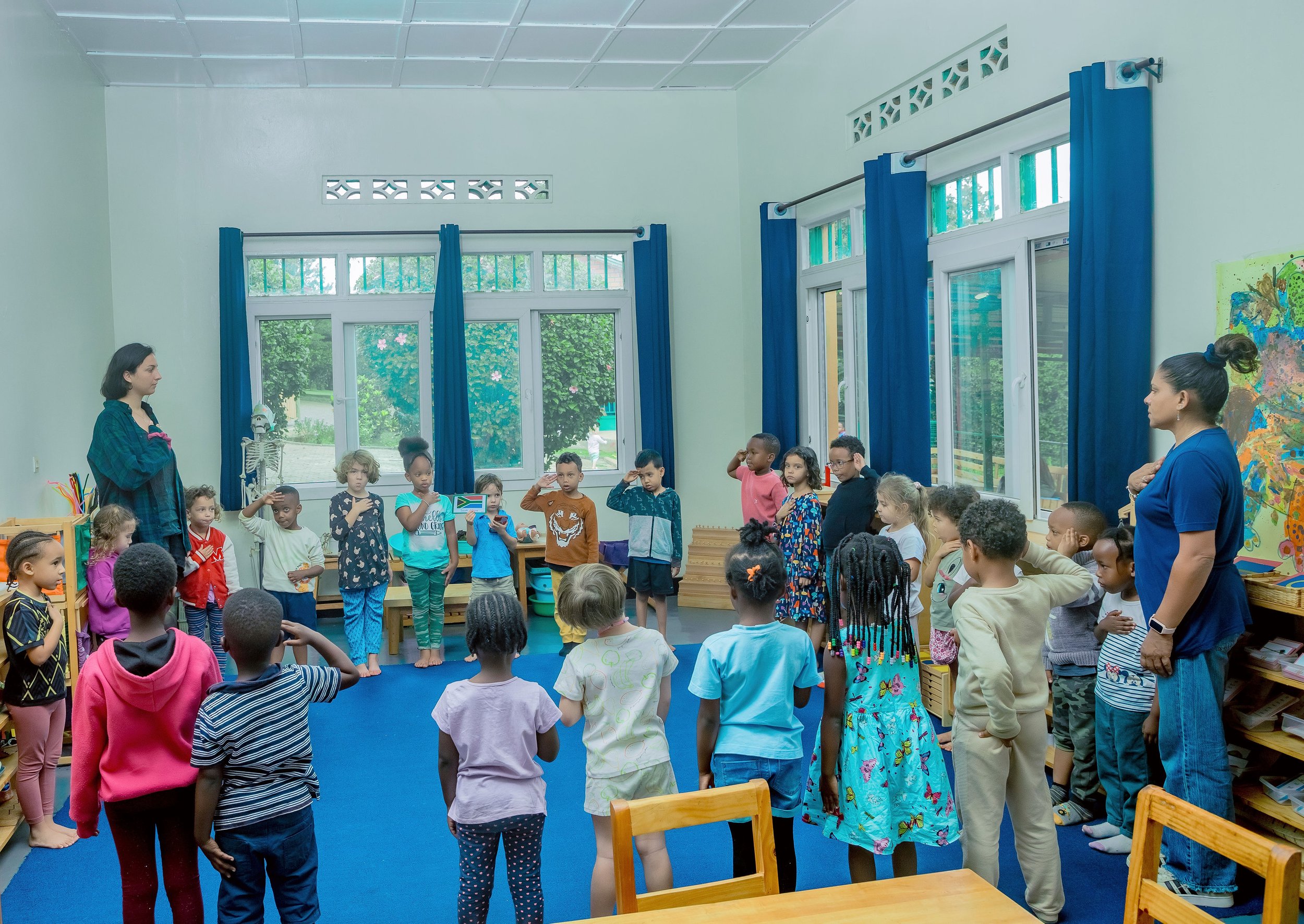
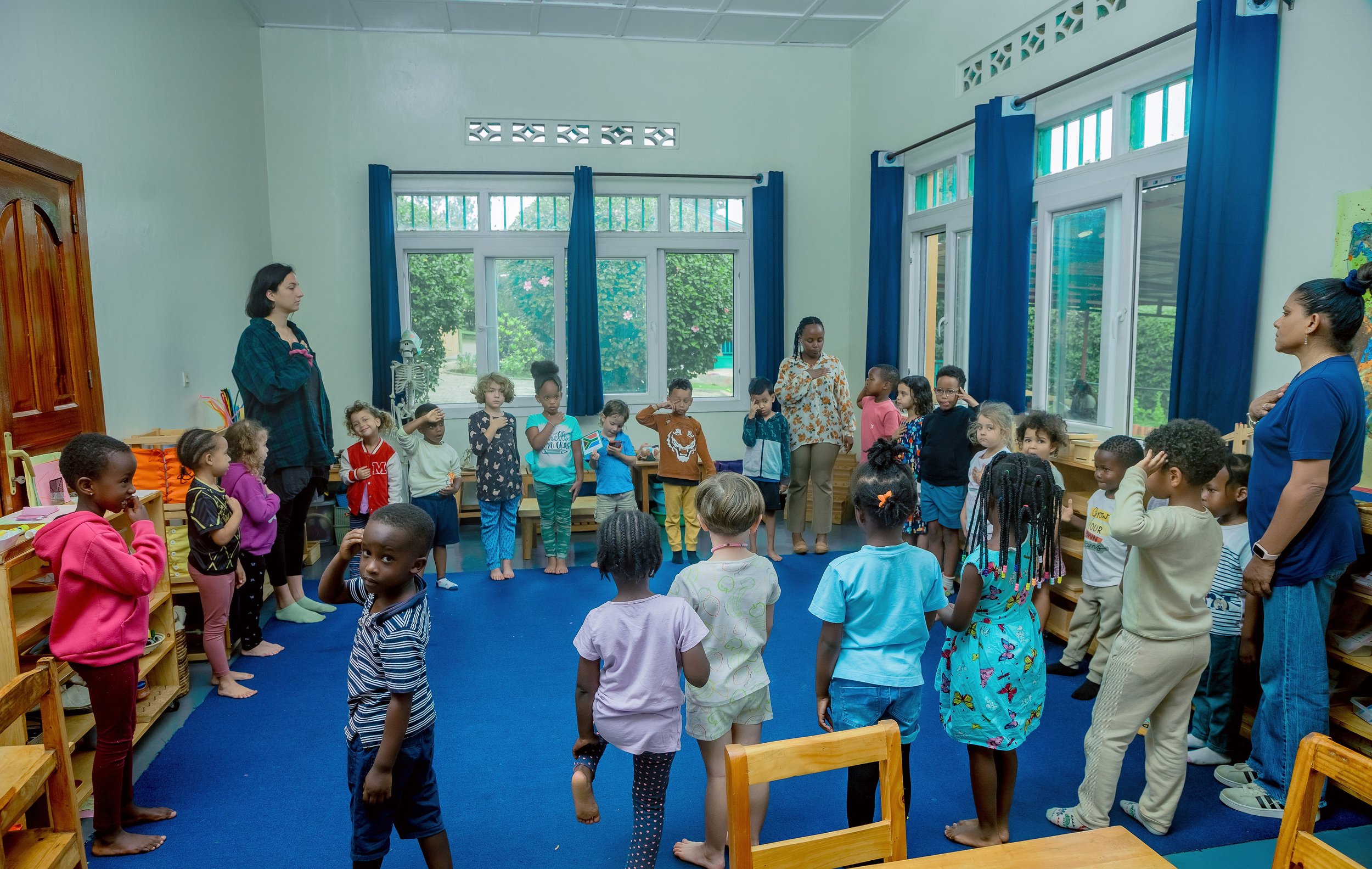
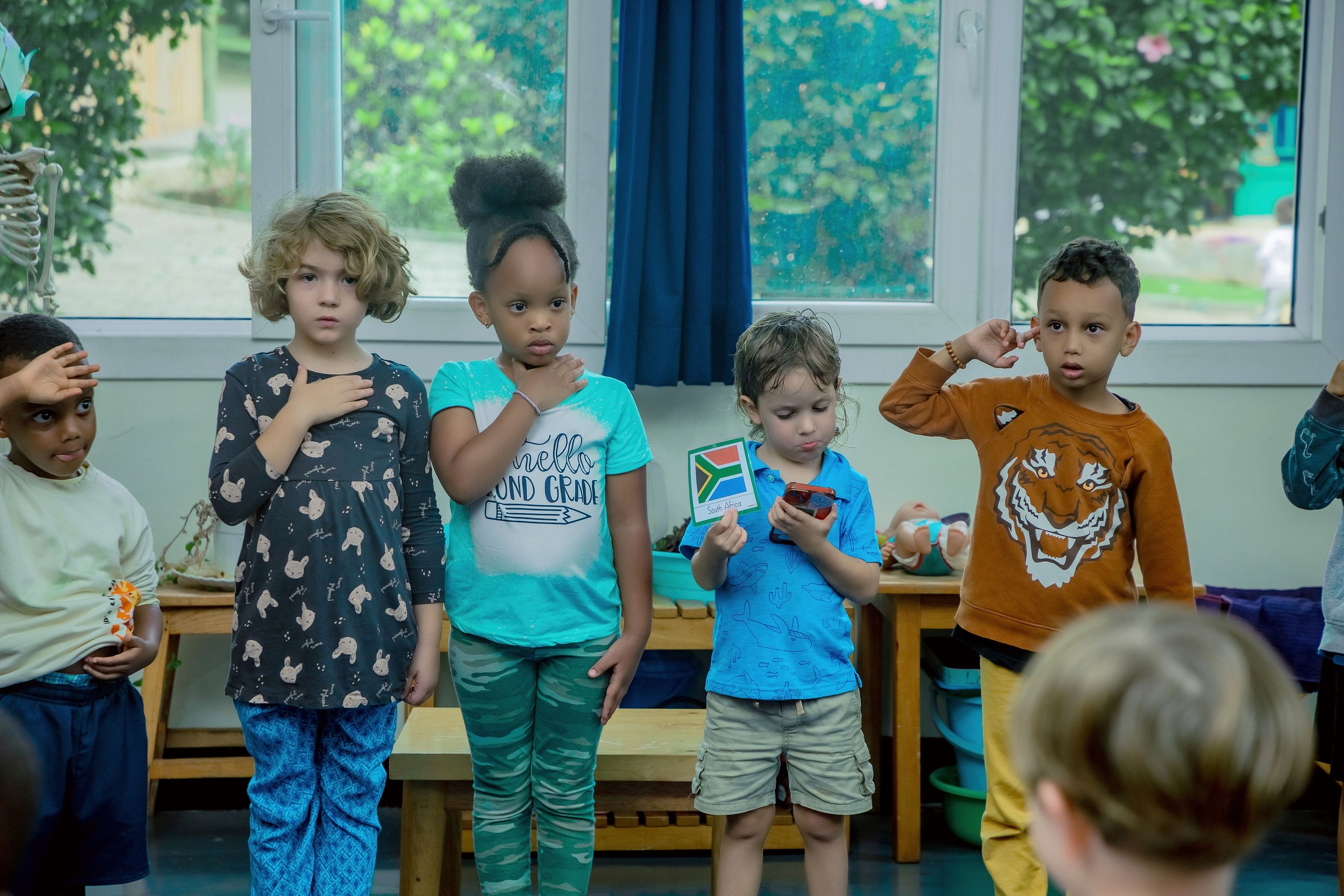
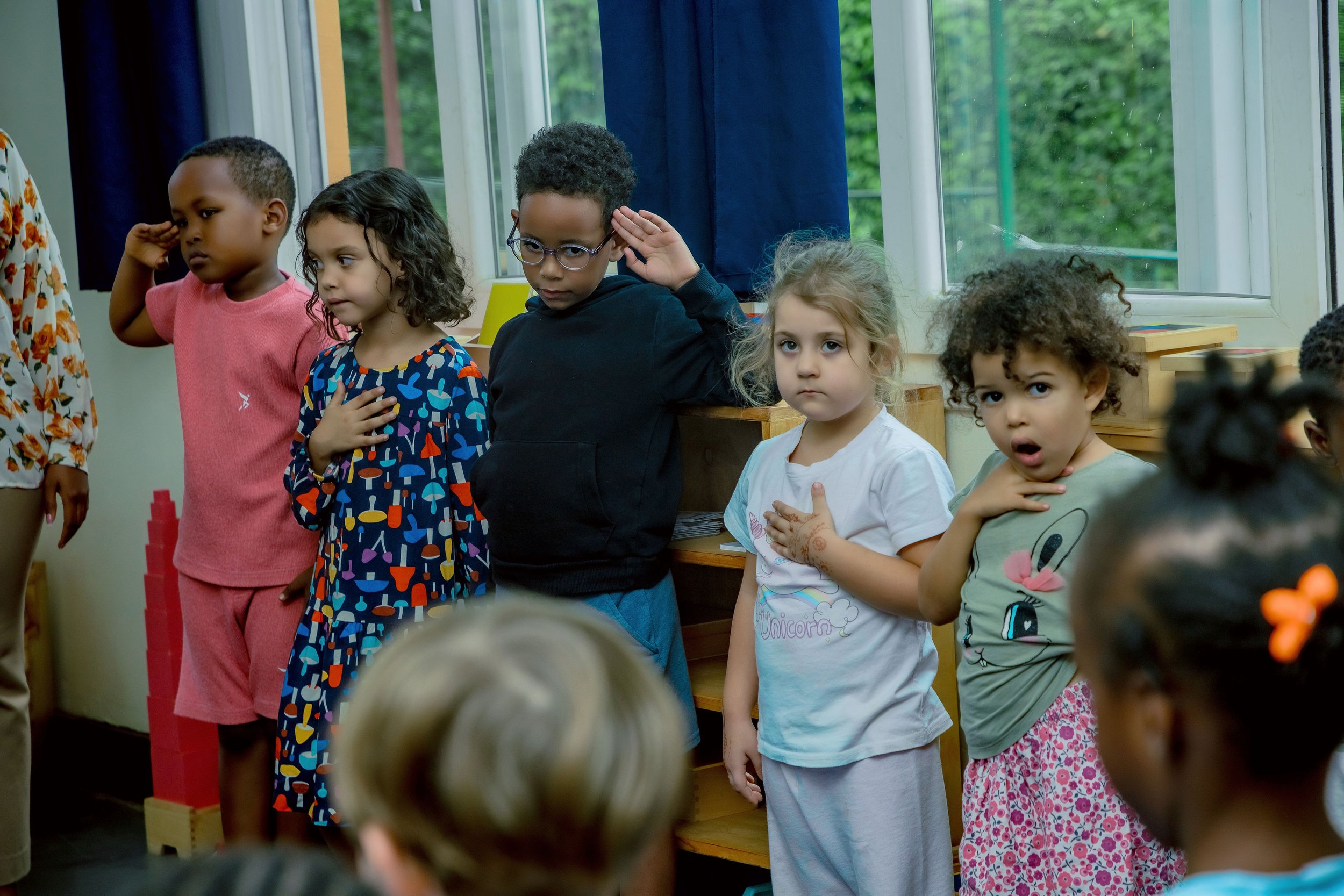
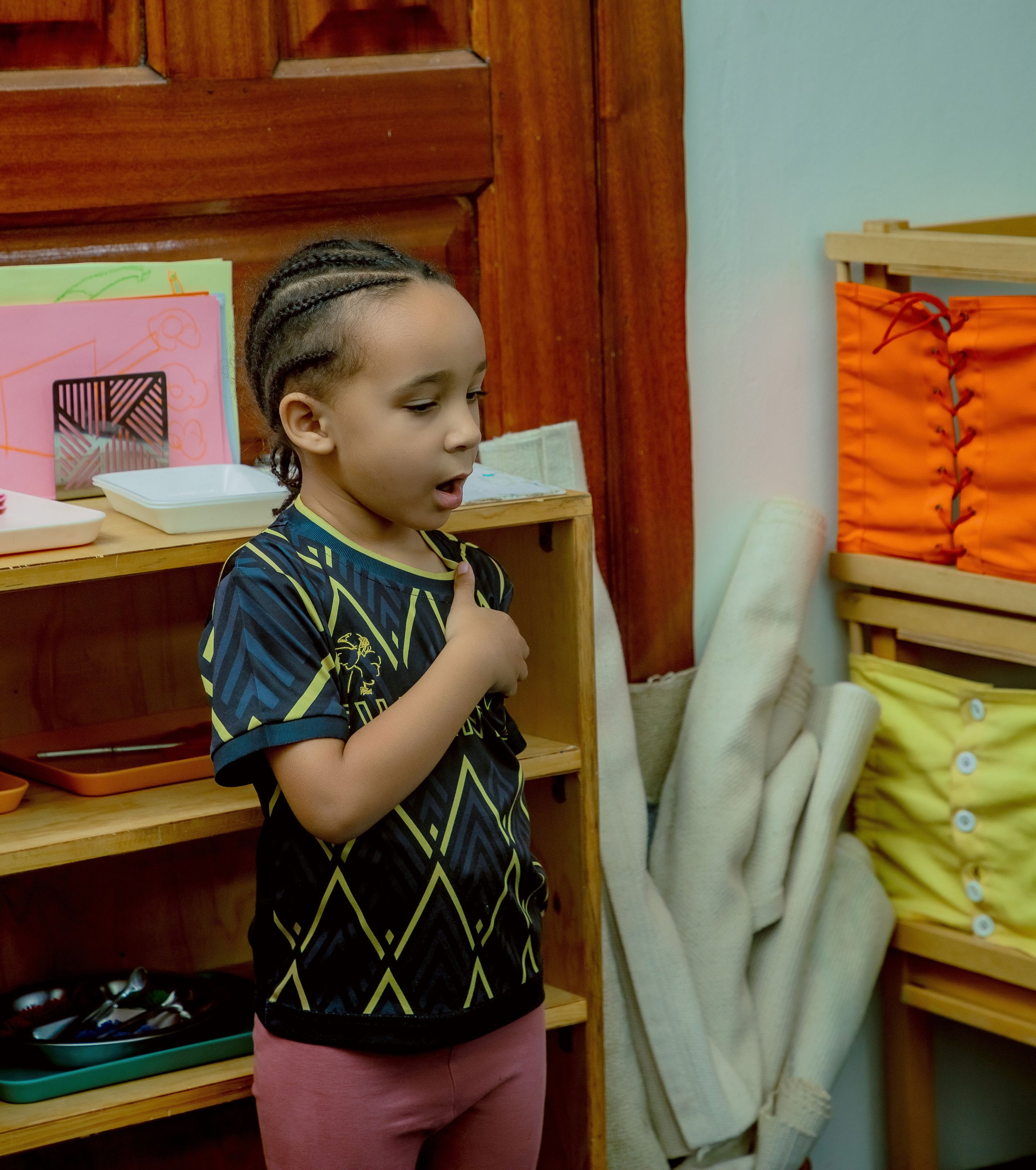
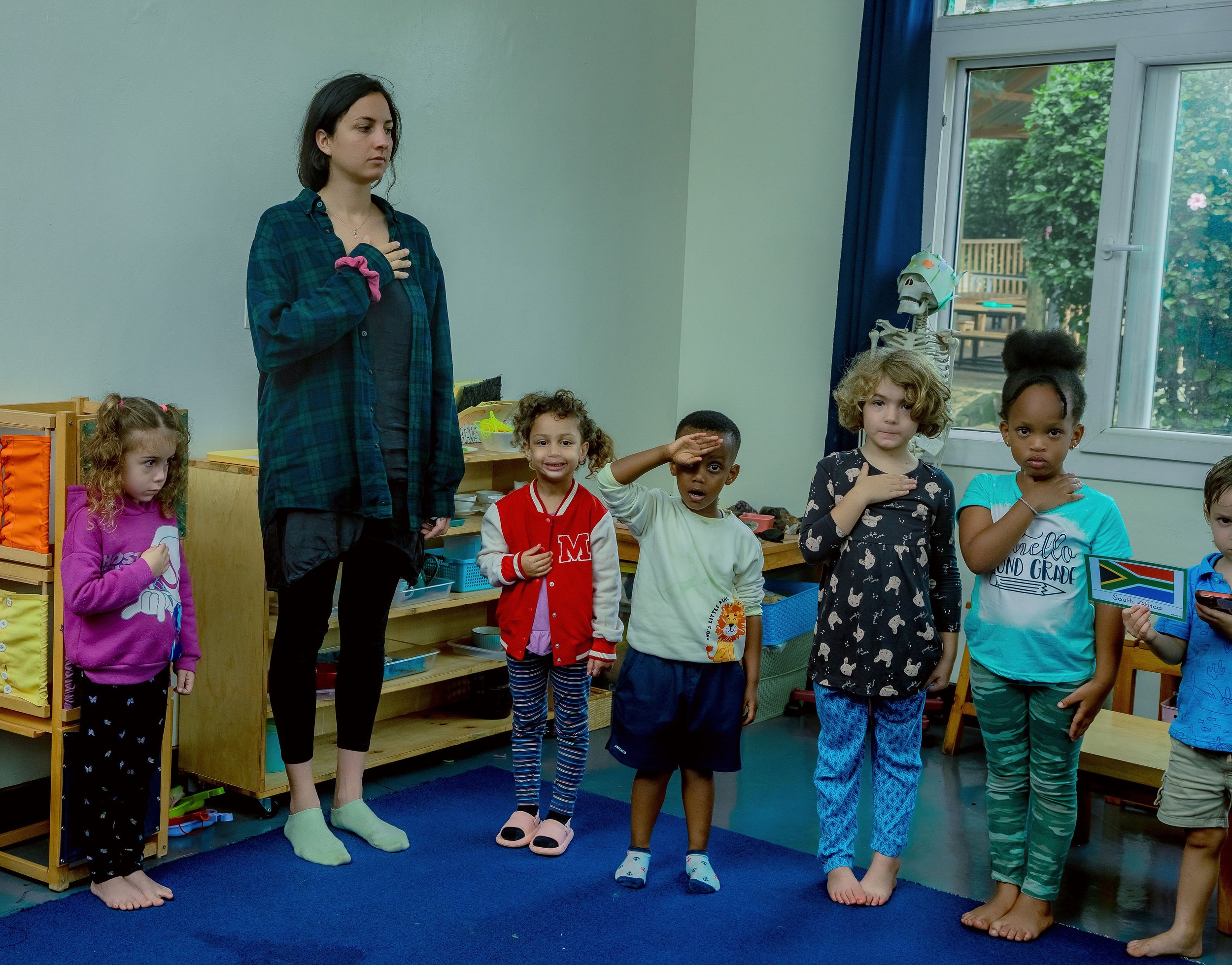
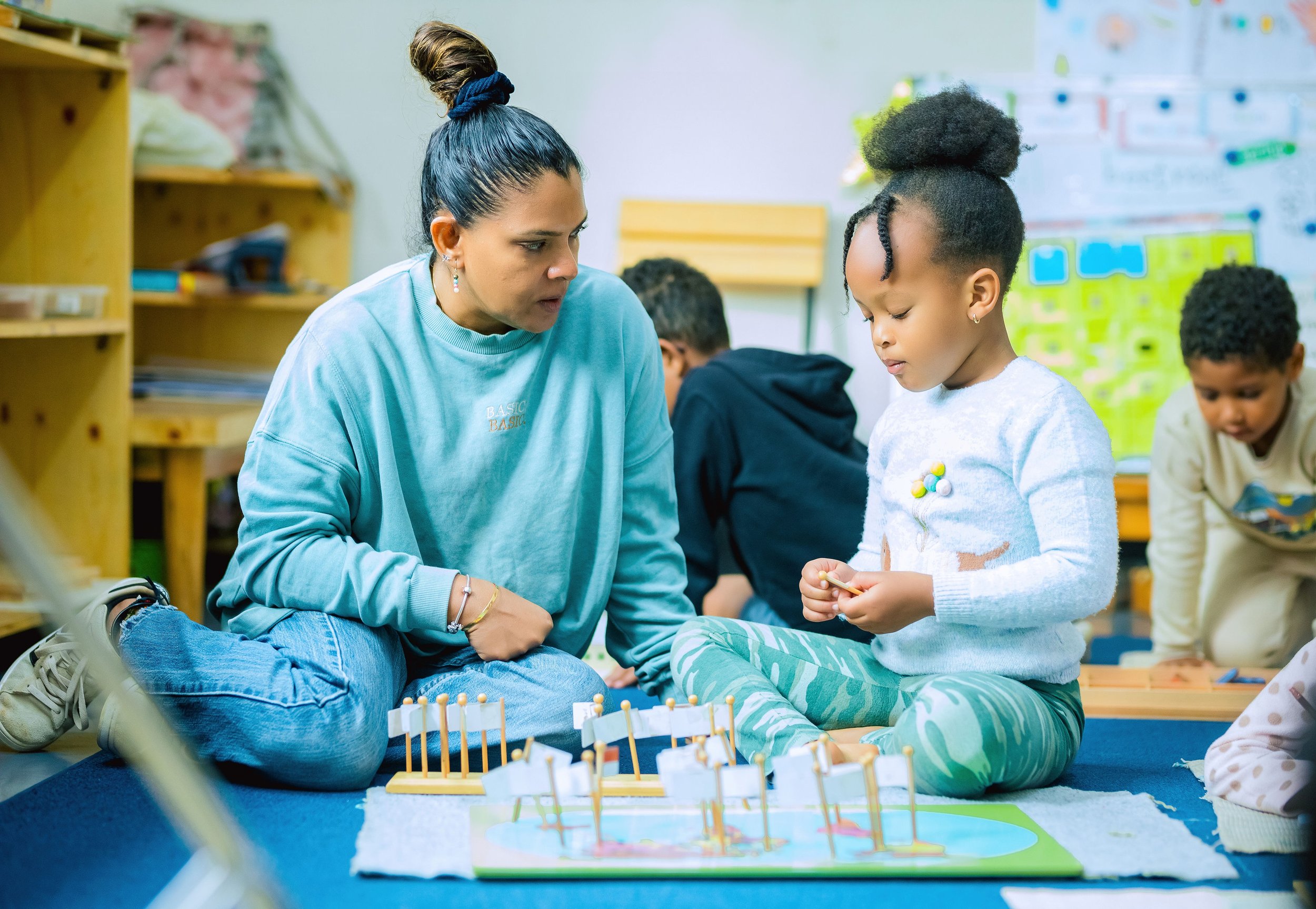
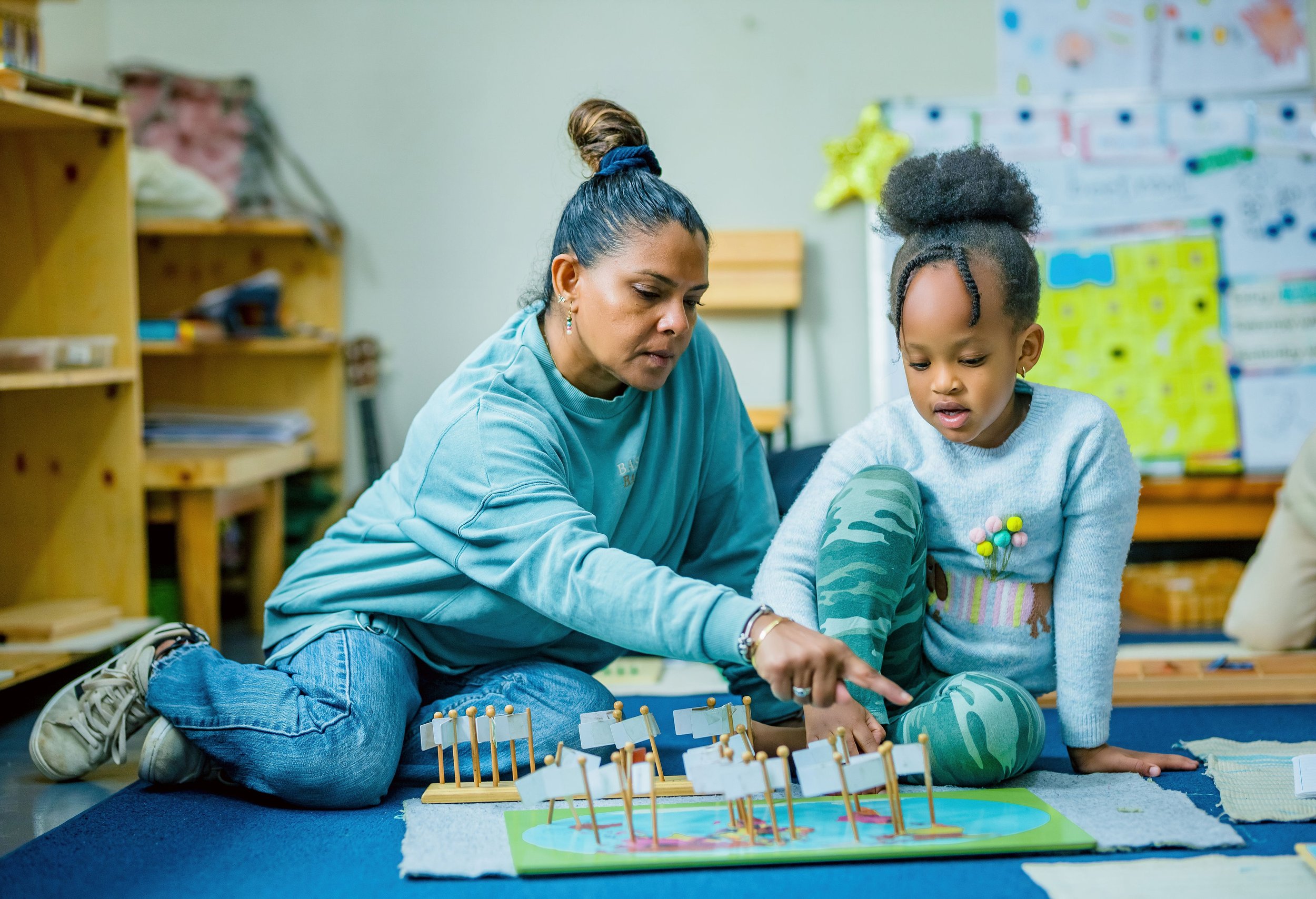
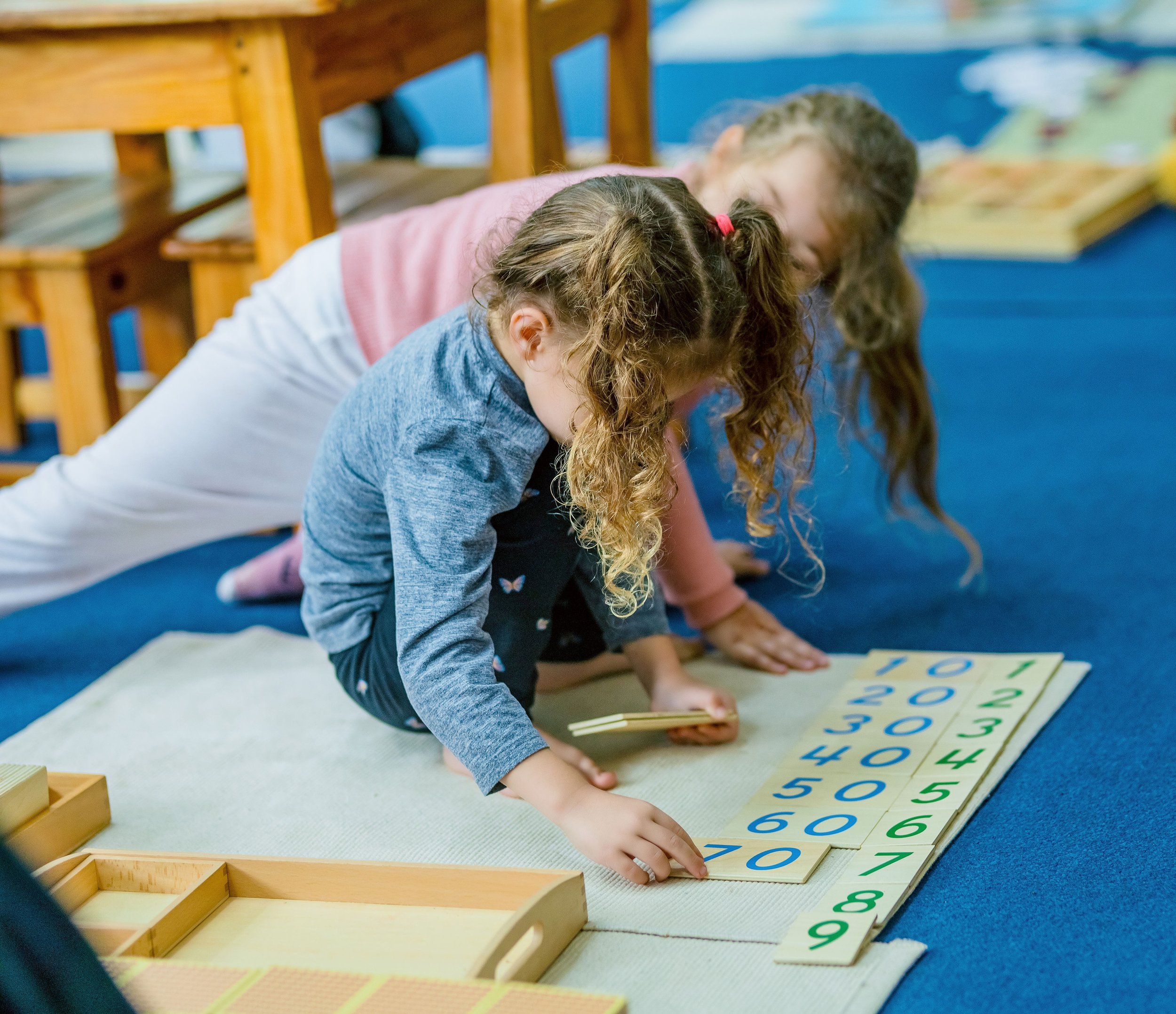
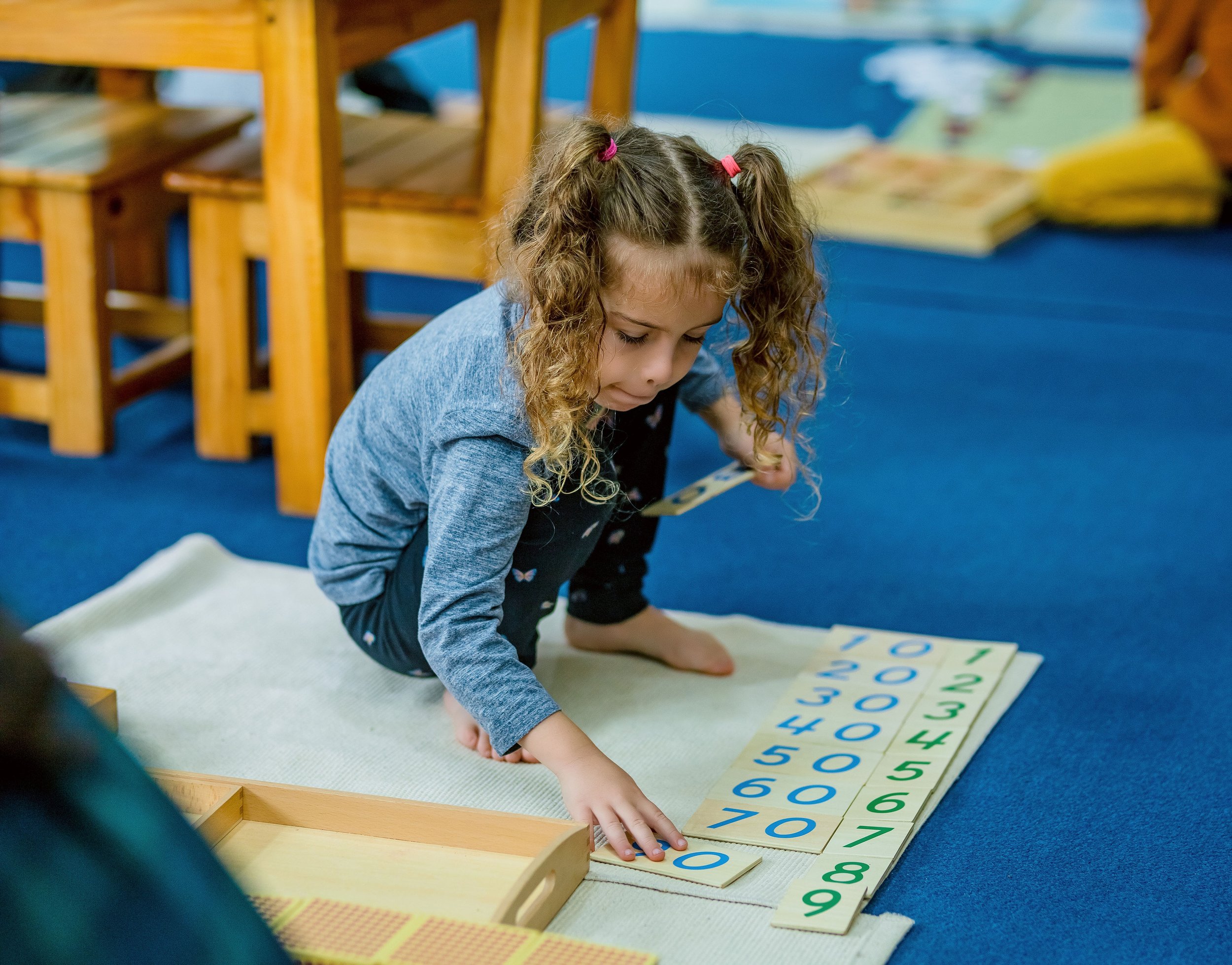
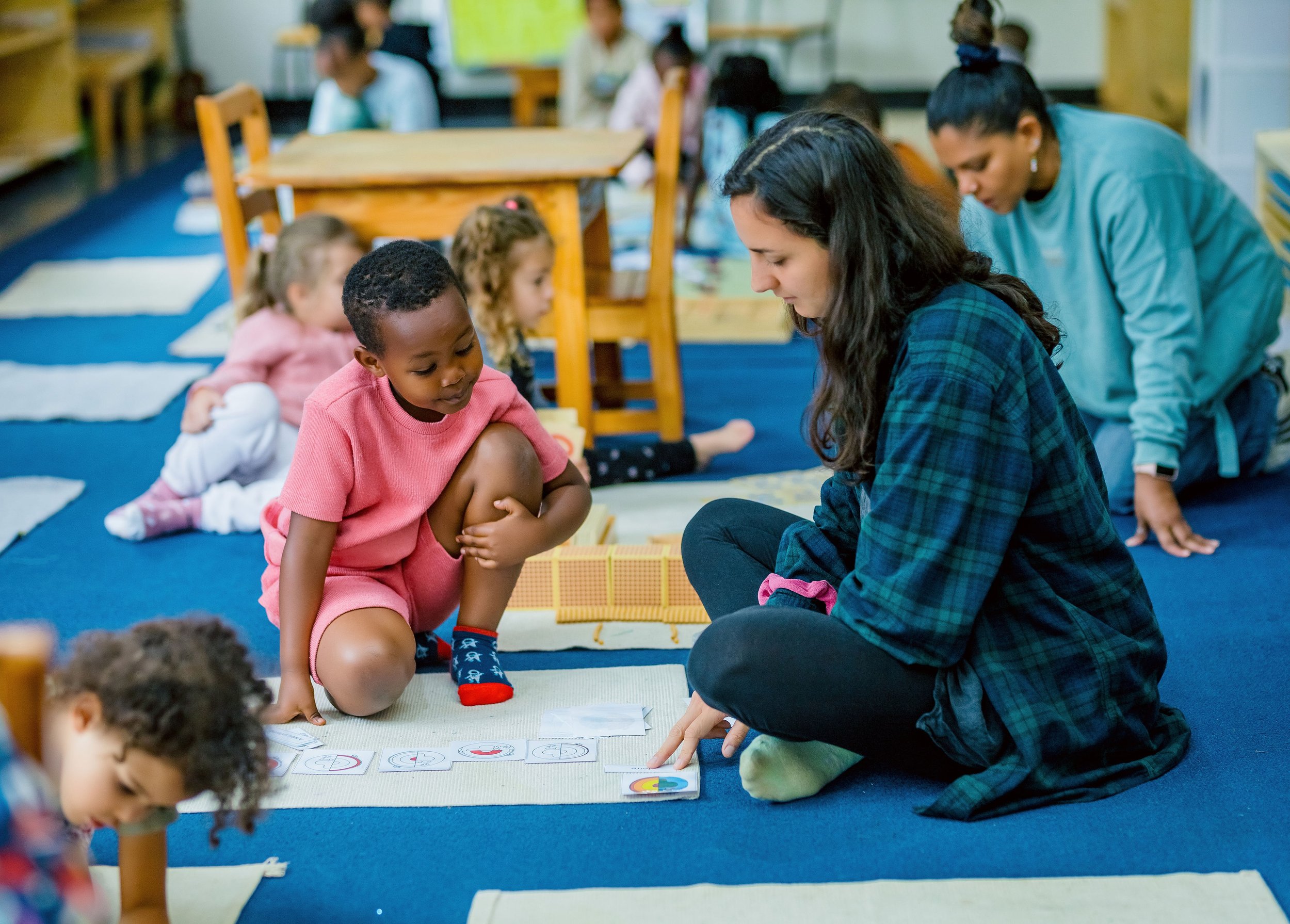

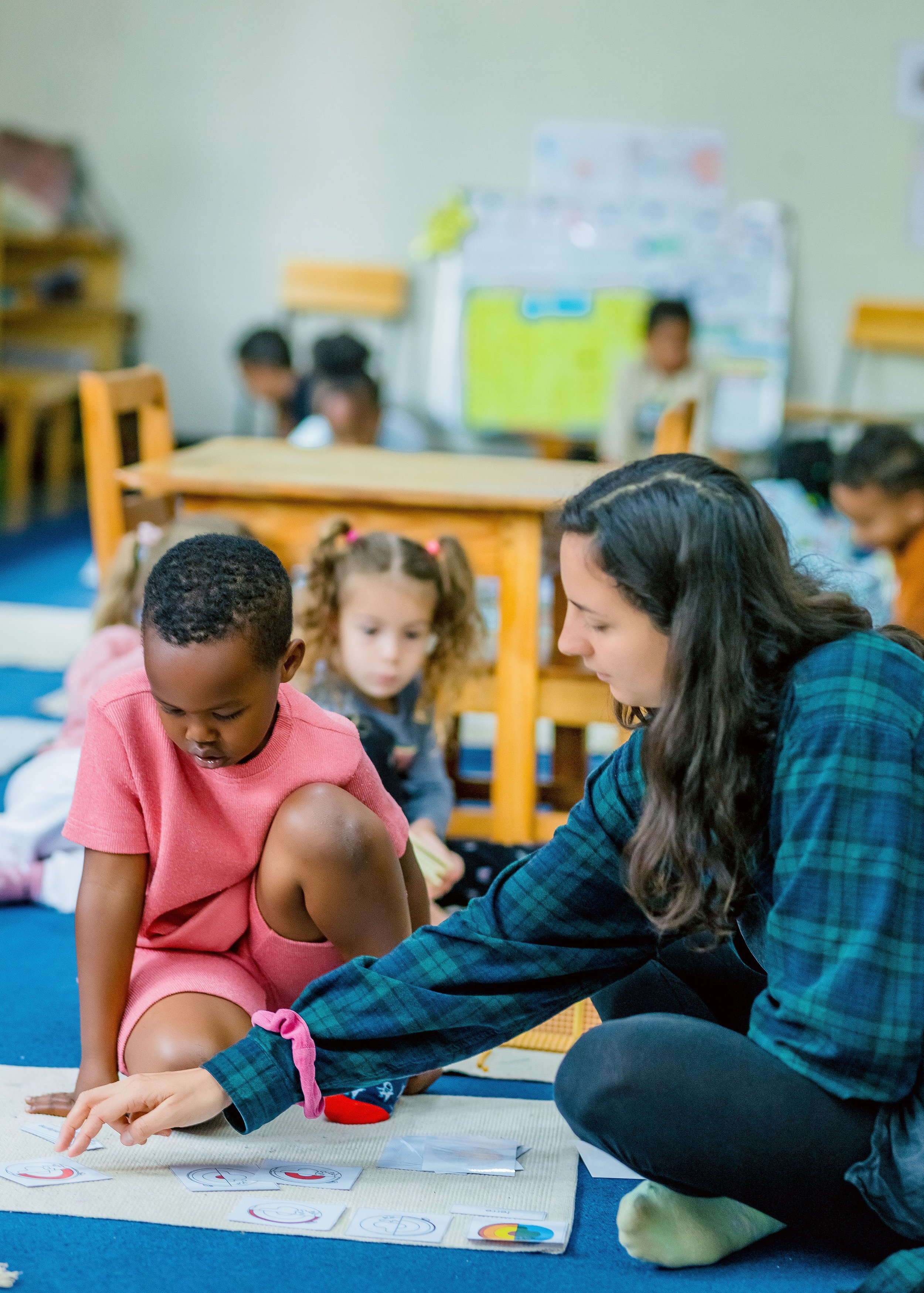
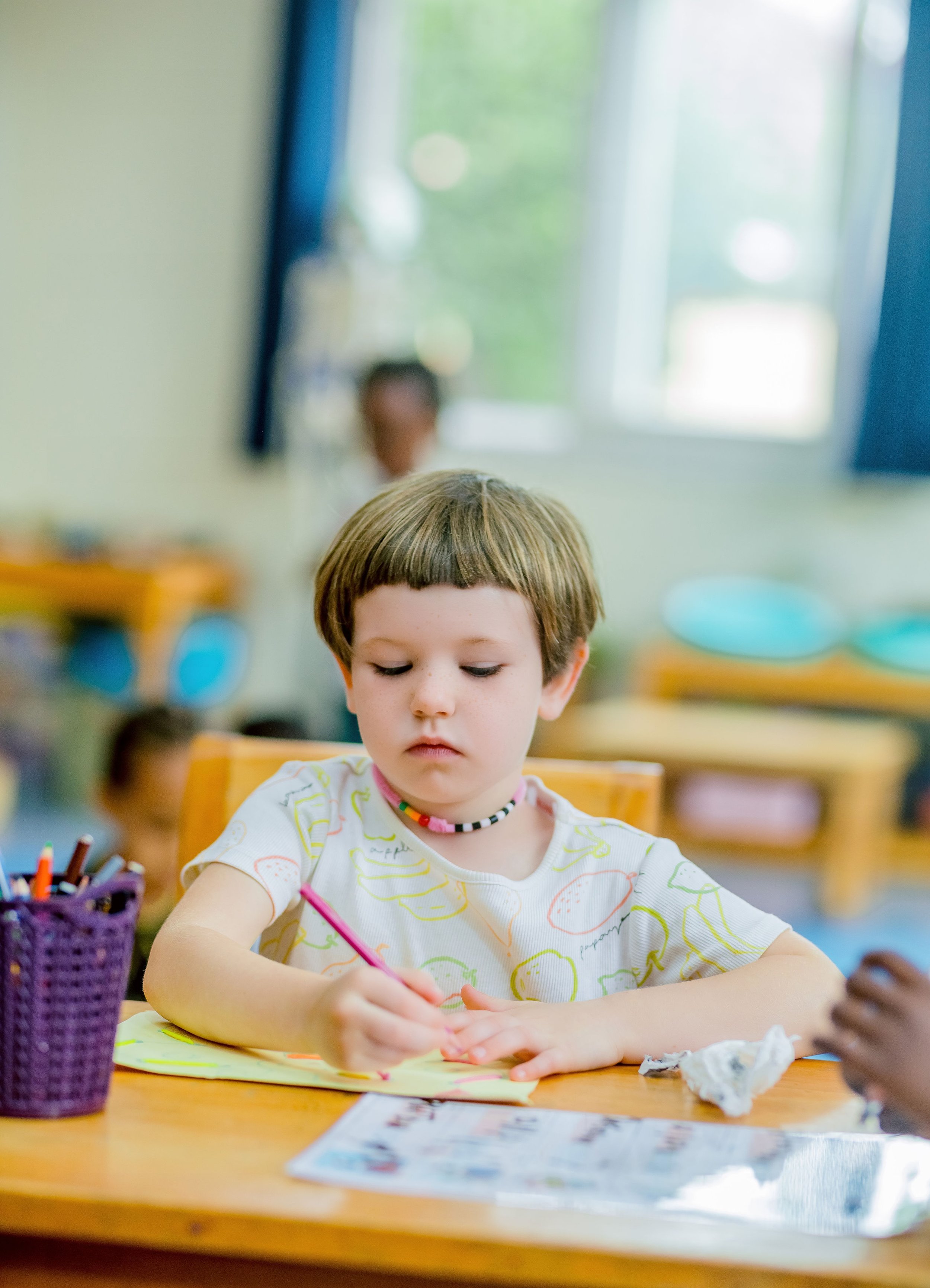
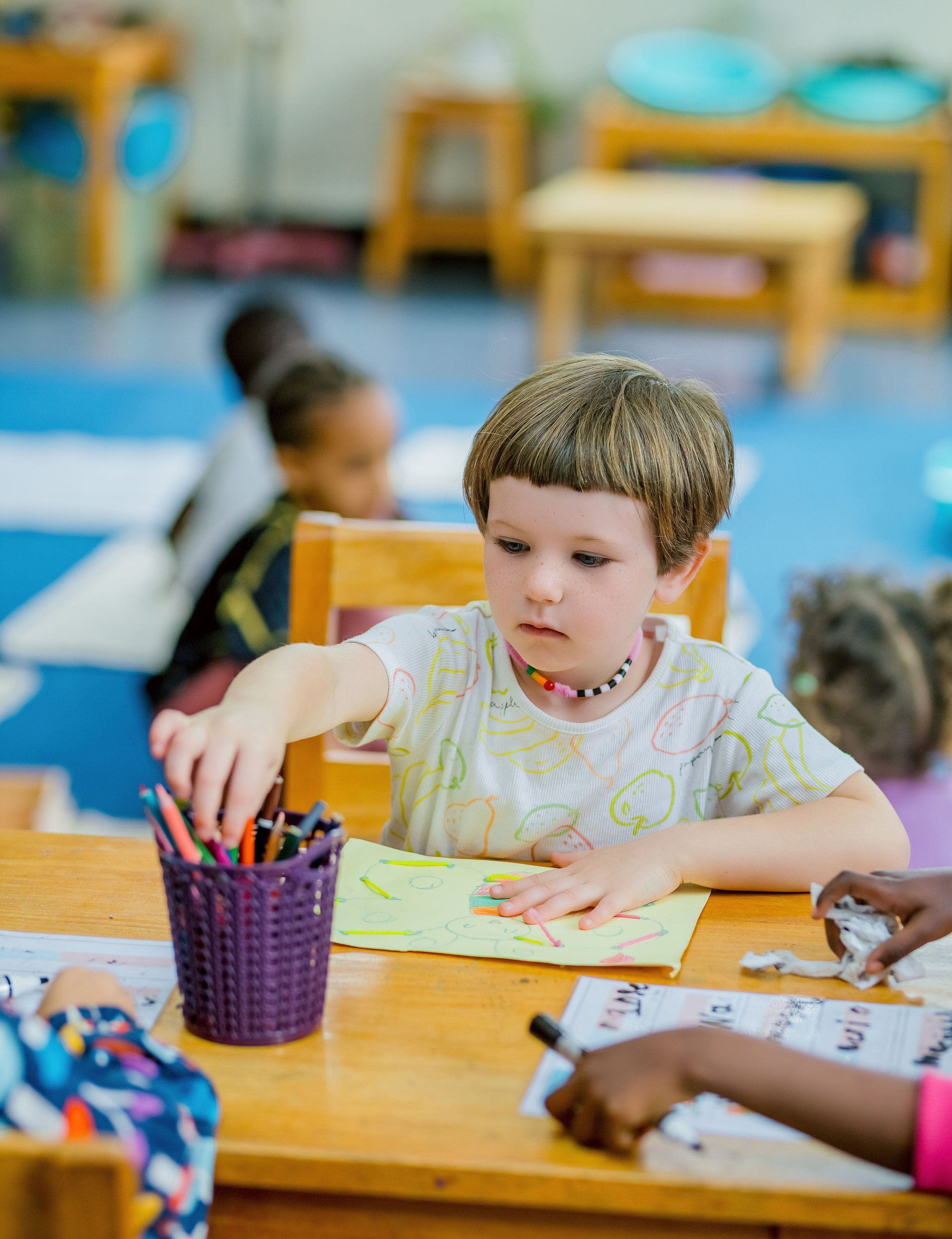
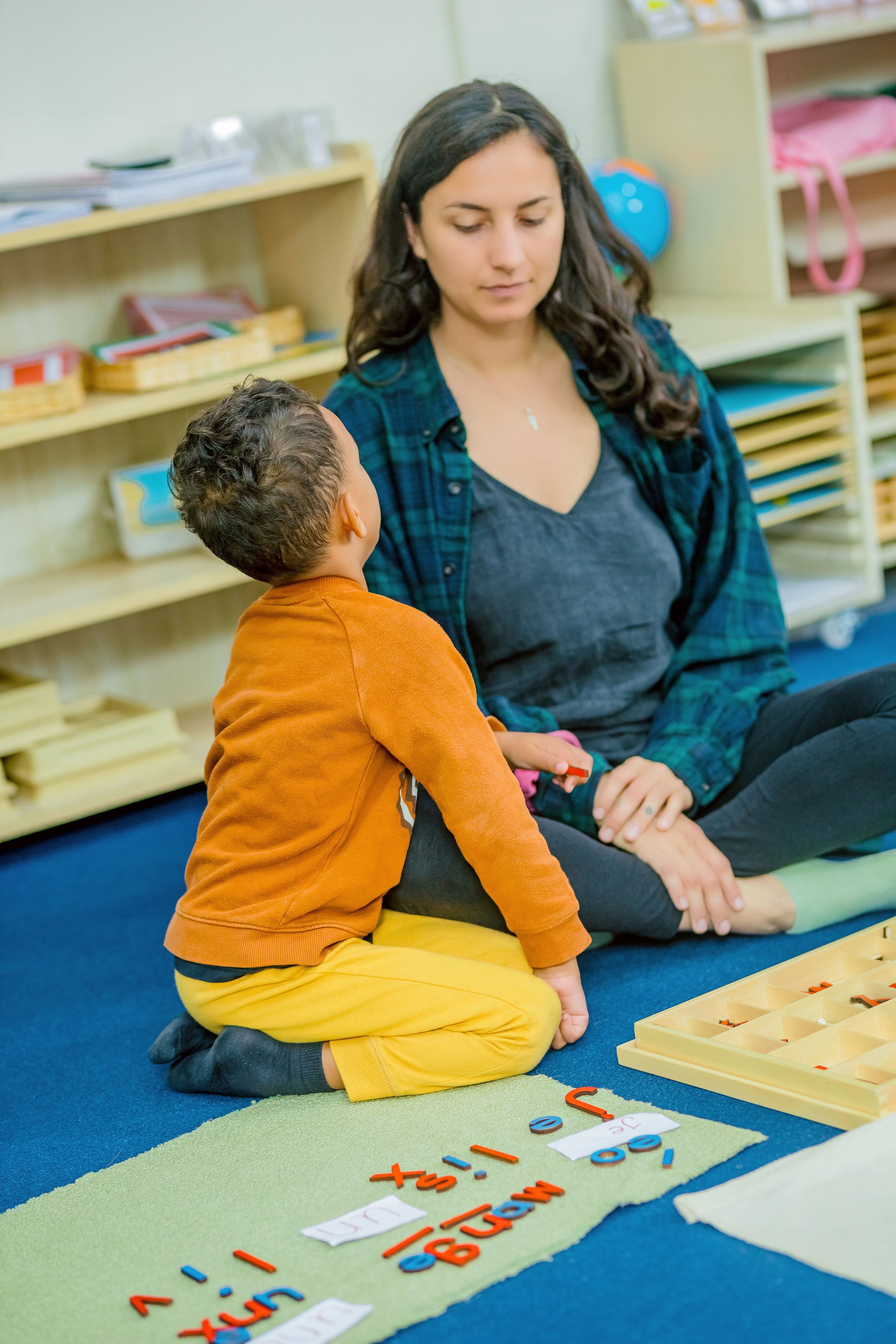
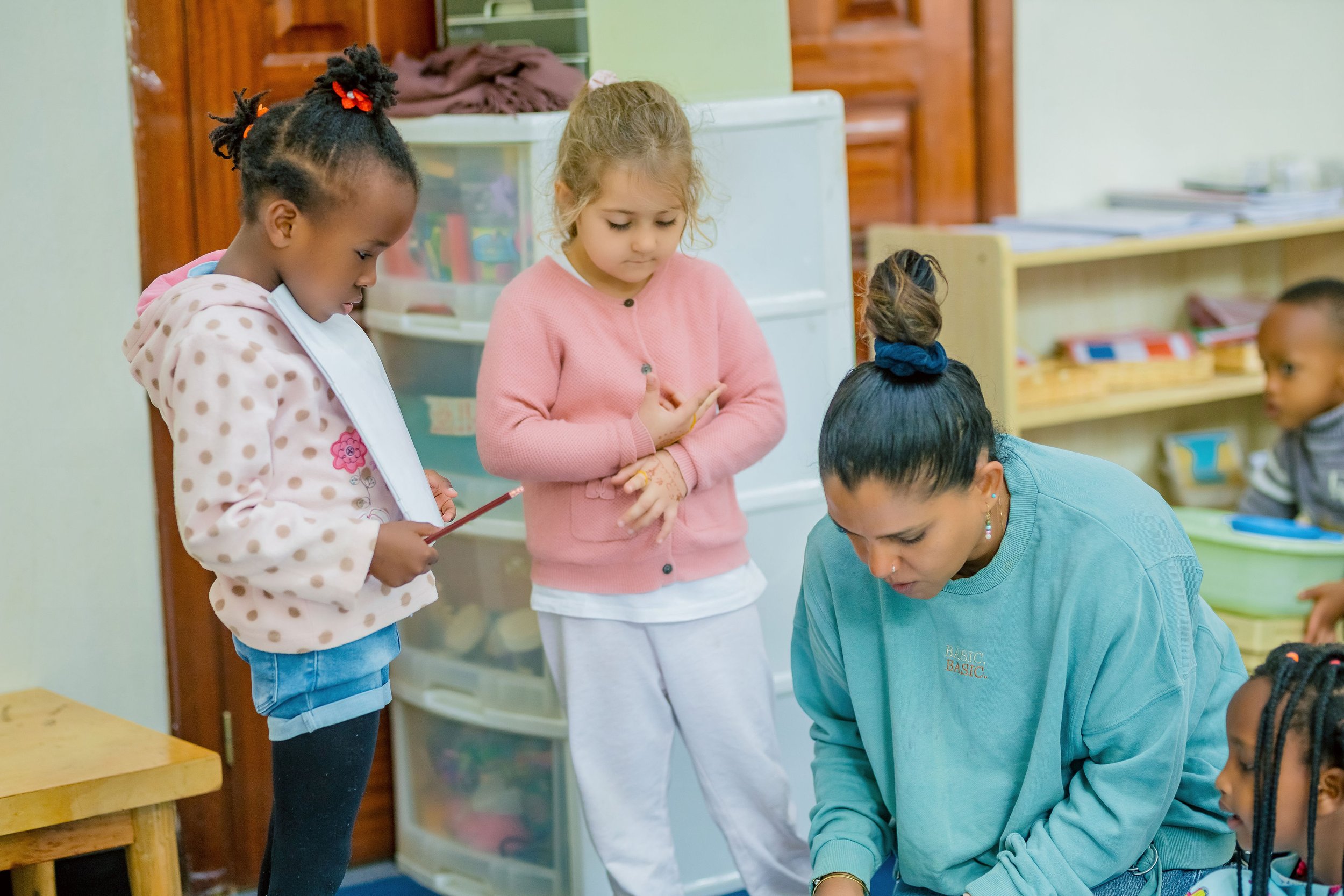
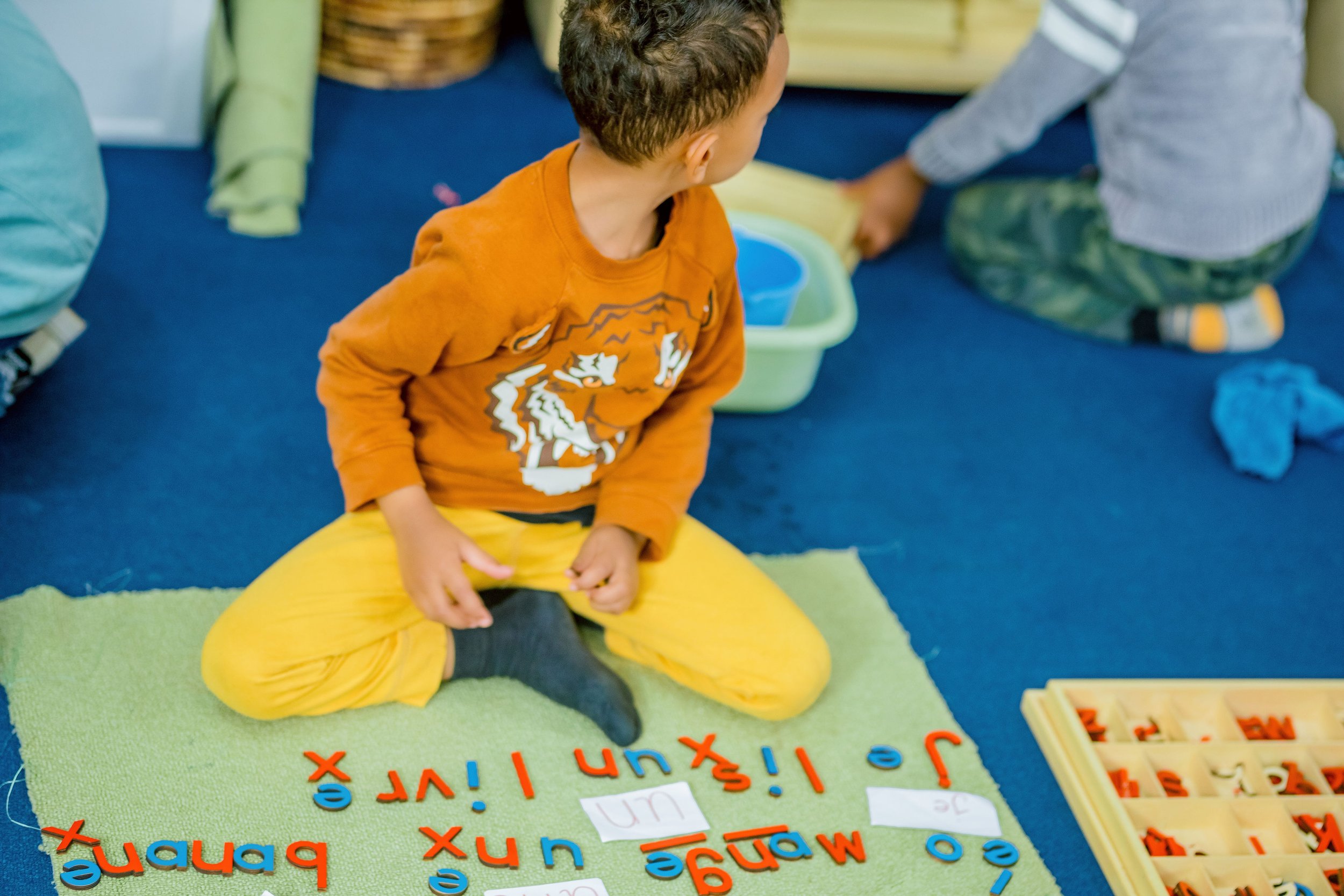

Why Choose DIMS
The DIMS early childhood program is for children ages 3-6 years old. Our classrooms are conscious communities where three year olds (first years), four year olds (Middle) and five year olds (kindergarteners) practice the art of grace, courtesy and authentic communication.They learn to regulate themselves in group situations, and they learn to use conflict resolution skills to stand up for themselves and what they believe
Prepared Environment
Our classrooms are adaptive, responsive and student-centered environments. Furniture, materials, and tools are child-sized, and they are arranged with the success of each child in mind. The work on shelves is self-correcting and remains consistently available so that children may independently return to materials for further exploration, practice, and eventual mastery.
Freedom of Choice
Children are active members of their day. They choose what, when, where and with whom they do their work based on their preference and learning styles. DIMS teachers give guided lessons, model grace and courtesy, and teach social skills one- on-one, in small groups, and with the whole class at circle time.
Self-Realized Competences
Early childhood students achieve success and become autonomous. Consistent daily routines make for a predictable order of the day so that children can build independence and confidence in themselves and their abilities. The physical layout of DIMS classrooms promotes collaboration, problem solving and self awareness.
Early Childhood Curriculum
A child shows their growth in a variety of ways. In our indoor and outdoor classroom environments children build and improve their coordination, concentration, independence and sense of order. Working through an individualized curriculum, and with scientifically-designed Montessori materials, they have opportunities to explore areas in Practical Life, Sensorial, Math, Language and Cultural Studies which are complemented by art, farming, reading, music, physical education and French programs
Math
Mathematics in Montessori is a concrete-to-abstract approach. Building on sensorial experiences, children take part in mathematical activities that begin with early counting and matching experiences and progress towards increasing understanding of number patterns, the four operations, number facts, and two and three dimensional shapes.
Language
Language development in Montessori initially focuses on spoken language and vocabulary enrichment. Phonological study leads to writing, reading, and the function of words. Children engage in activities such as songs, games, poems, stories, and classified language cards to refine their language skills. The process begins with practical life exercises and sensorial training.
Science
Young children are intensely interested in the natural world. They ask questions constantly in order to build a framework to classify the world that surrounds them. The science curriculum at this age takes advantage of the young child’s natural curiosity. It offers concrete exploration that helps build vocabulary and understanding of physical and life sciences.
Social Sciences
The goal of the geography curriculum at this level is to introduce geographical concepts through a concrete sensorial approach. We first give the big picture (land, air, and water) and gradually move to details like the names of continents, oceans, or states. An awareness of the physical features of the earth is built through concrete exploration of land/water formations and maps. The study of culture is integrated with Practical Life and strives to provide children with multi-sensory impressions of the people, lands, and cultures of other nations.
Practical Life
At DIMS, children learn to independently care for themselves and their environment through the exercises of practical life. These activities provide opportunities for the development of concentration, fine and gross muscle coordination, a sense of order including an orderly work cycle, independence, and attention to detail. The exercises of practical life support the child's natural development of executive function skills. Thus, the activities of practical life lay the foundation for all other future academic work. Practical life is the starting point for the youngest members of the class. Children continually develop and refine the skills of practical life throughout their time in early childhood classrooms.
Sensorial
Sensorial materials support children to perceive and understand the world, allowing them to classify, sort and order their experiences. Each material isolates a sensory quality, such as colour, form, dimension and texture, fostering precise language and meaningful connections.
